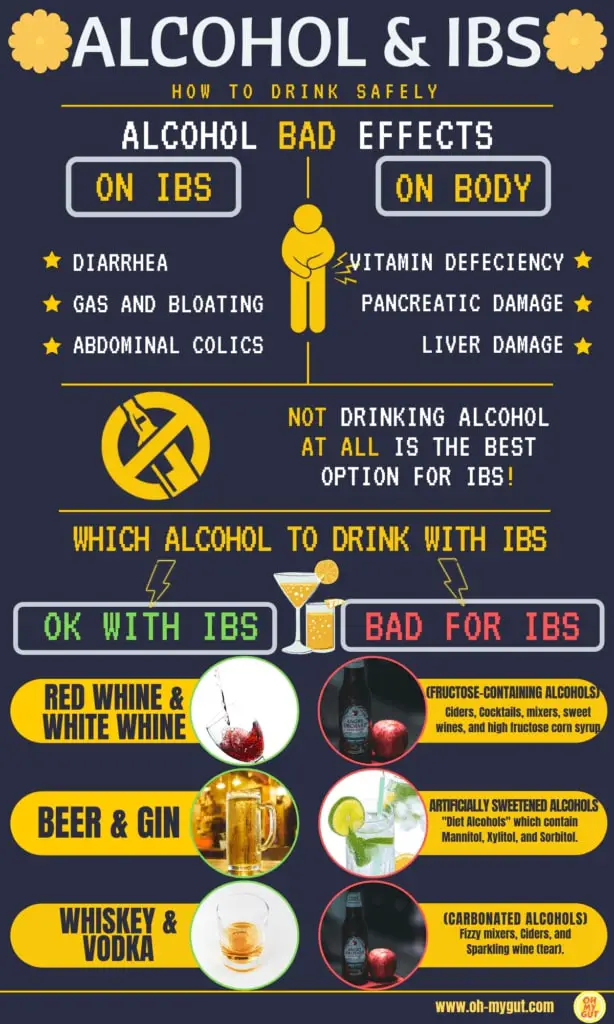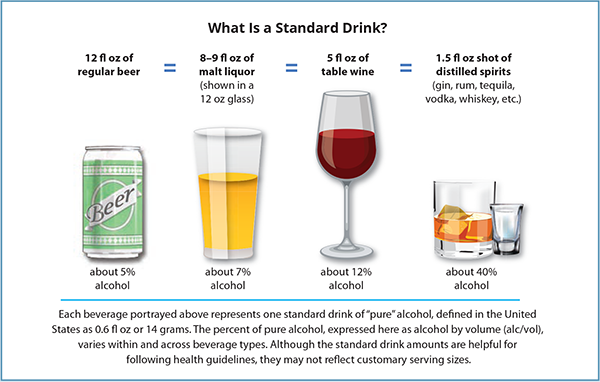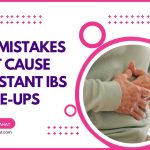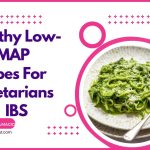Best And Worst Alcoholic Drinks for IBS SUfferers
Our content is not intended nor recommended as a substitute for medical advice by your doctor. Use for informational purposes only.
IBS pain is the worst!
We – IBS sufferers – try to avoid anything causing pain to us.
The relationship between IBS and Alcohol is little understood. If You are an IBS sufferer and alcohol drinker, many questions come into your Mind about IBS and alcohol drinking:
- Can alcohol cause IBS flare-ups?
- Is there low FODMAP alcohol?
- What is the best alcohol for IBS?
- Does alcohol cause my IBS?
- What alcohols to avoid with IBS?
In this article, I’ll do my best to answer all your questions and provide evidence-based data to help you.
This is an in-depth research article. I spent time writing it aims to answer all the questions in your mind.
Quick Insights:
- Alcohol can cause IBS flare-ups, diarrhea, and gas, but it depends on the amount and type of alcoholic beverage you drink.
- Light alcohol drinking may not affect your IBS.
- Not drinking alcohol at all is the best option for your IBS.
- Never drink alcohol high in FODMAPs, like High-fructose beverages, carbonated alcoholic drinks, and alcohols containing artificial sweeteners (diet alcohols).
- Dry wines like red and white wires are low in FODMAP. Also, vodka, whiskey, and Gin are OK to drink with IBS.
- Never take alcohol on an empty stomach but try to drink water or eat before you drink.
- Studies proved that probiotics can decrease the effects of alcohol on your IBS.

[A] How alcohol and IBS interact.
1. How alcohol affects your IBS?
Alcohol triggers IBS, especially if you drink it in large amounts.
Alcohol affects your intestinal motility, permeability, and absorption of nutrients [ref] and can trigger IBS symptoms, especially with binge drinking, causing:
- Bloating
- Diarrhea is usually associated with Yellow stools.
- gas distention
- Abdominal colics and pain.
- Alcohol can affect the good bacteria inside your gut. Disruption of these bacteria can cause IBS symptoms.
2. Your IBS isn’t only affected by the type of alcohol you drink:
The type of alcoholic beverage you drink is not the only factor that affects your IBS symptoms.
Many other factors can cause a bad experience with drinking alcohol like:
- The amount or frequency of your drinking.
- People have different “Gut reactions” to the same type of alcohol.
- Whether you take foods or drinks with alcohol.
- Your mood.
Good to know that we are all different in our response or sensitivity to alcohol.
So, the relationship between alcohol and IBS is complicated, and alcohol effects are subject to individual variations.
For example
You may drink 3 to 4 beverages per them, and you don’t have symptoms
On the other hand, others may have a bad experience with their IBS just from having one drink.
This is due to the different sensitivities to alcohol across different persons.
3. Alcohol not only affects your IBS But Your Entire digestive system:
Alcohol is a chemical toxin not only affects it’s your IBS but also affects: [ref]
- Food and vitamin absorption from your small and large intestines.
- Alcohol can irritate your pancreas, causing chronic inflammation leading to abdominal pain and indigestion.
- Alcohol can cause serious damage to your liver, what’s called Alcoholic Liver Disease (ALD).
- Alcohol increases your intestinal permeability to toxins, which moves from your gut to your blood affecting many organs.
- If you consume alcohol in large amounts for many years, you are at risk of cancer, especially in your mouth and esophagus.
4. Light drinking is safer for your gut:
In 2013, American Journal of Gastroenterology scientists found that drinking excessive alcohol is associated with more IBS symptoms.
Also, light to moderate drinking is usually not associated with increased IBS symptoms.
Avoiding binge drinking and light alcohol drinking is the best strategy to avoid flare-ups.
So
How much should you drink?
According to The U.S. Office of Disease Prevention and Health Promotion Dietary Guidelines
- For women, up to 1 drink per day
- For men, up to 1 to 2 drinks per day
I will explain how to calculate the amount of alcohol you drink for different types of beverages.
Interestingly…
Light alcohol is beneficial in killing some harmful bacteria invading your gut like:
- Helicobacter Pylori causes gastritis and peptic ulcers.
- Vibrio Cholera organisms cause life-threatening diarrhea.
- Organisms that cause food poisoning, like Salmonella!
- Other proposed benefits: alcohol may reduce the risk of heart disease, brain stroke, and Diabetes. [ref]
NOTE: These “potential” benefits are only associated with light drinking. The reverse occurs when you binge drink alcohol.
Listen to this interesting video from the SciShow YouTube channel about the benefits of alcohol!
Disclaimer: I believe alcohol harms your health, and I only show these data to help you see the whole topic.
5. Some studies suggest that alcohol is the cause of IBS.
If you were an alcohol drinker before you were diagnosed with IBS, your alcohol drinking may have played a role.
Alcohol is a strong chemical irritant that affects all parts of your digestive system.
In 2015, a large Chinese study that included over 57,000 people with alcohol abuse found that alcohol abuse increases the risk of developing IBS.
Although there is no definite mechanism by which alcohol causes IBS but a clear relationship is always present.
So, we can say yes, IBS may be caused by alcohol in people who over-consume it for long periods.
6. Alcohol Can Cause IBS Flare-Up. But Not Immediately.
Alcohol is a well-known IBS trigger, and the flare-up is largely determined by the type and the amount of alcohol you consume.
Alcohol doesn’t need to cause IBS flare-ups on the same day. You may experience IBS symptoms on the next day of drinking alcohol.
This late effect may not make you sure about what triggered your symptoms. If you are not sure, keep track of your symptoms.
You can use a diary to document your IBS flare-ups. I found that “Flashback” tracking flare-ups are more practical and easier. Tracking everything you eat, even when you are symptom-free, is overwhelming.
You have to record the pattern of your alcohol intake before every attack of IBS. Not only a few hours before the attack, but also track drinking the day before the IBS attack.
7. Binge-drinking alcohol is the worst scenario for your IBS.
Binge-drinking alcohol will increase your symptoms. With any alcohol, even with low FODMAP alcohols. [ref]
Binge drinking carries a high risk of worsening your IBS. This is especially causing diarrhea-predominant IBS and is more frequent in females than males.
Light drinking of alcohol has little or no effects on your IBS.
No drinking at all is the best option.
[B] Best Alcoholic Drinks for IBS sufferers [Low FODMAP alcohols for IBS]
1- Red and white wine [except for sweet wine]
Red wine and white wine are low in FODMAP. They contain about 12% alcohol, and the alcohol itself is irritant to your IBS.
Both red and white wine are OK to drink with IBS, but you must drink in moderation. Excess amounts of red or white wine may worsen your IBS. The allowed amounts are:
- For men: 10 fluid ounces daily (300 CC of wine).
- For Women: only five fluid ounces per day ( 150 ml).
It is better to take wine with food or water. Also, you should drink wine slowly and avoid binge drinking.
2- Beer [OK with IBS, except carbonated beer].
Beer is low FODMAP, and it is generally accepted to drink beer with IBS. But not the “carbonated” type. Beer is low in alcohol. Alcohol forms only 5% of beer. So, you can tolerate more amounts than wine with your IBS.
Accepted amount of beer with IBS:
- For men: Up to 24 Fl. Oz. (or about 720 ml)
- For women: Up to 12 Fl. Oz. (or about 360 ml).
You have to avoid carbonated beer and track your symptoms the days after drinking beer. If your IBS gets worse (nausea, diarrhea, indigestion, bloating, or abdominal pain), you have to decrease the amount you drink or cut it completely.
Choosing the best beer type for your IBS can be challenging as there are different beer ingredients (different sources, different flavorings, carbonation).
To choose the best beer for IBS, consider the following:
- Avoid carbonated beer, as carbonation can worsen your IBS symptoms (distension, colics, and bloating).
- Avoid artificially sweetened beer (check the label for substances such as xylitol, sorbitol, and mannitol). An artificial sweeter is high in fodmap and can hurt your IBS.
- Avoid high fructose beer as hone
3- Vodka and whiskey [OK with IBS]
Vodka is the highest in alcohol (about 40%). Vodka is OK to drink with IBS as it is low in FODMAP, but you must consume it in modest amounts because of its high alcohol content.
The same applies to other “distilled spirits” with IBS, such as rum, tequila, and whiskey, as they are very high in alcohol concentration.
The allowed amounts of vodka with IBS:
- For men: No more than 3 Fl. Oz. (about 90 ml per day, maximum).
- For women: about 1.5 Fl. Oz. (about 45 ml).
Because of the very high content of alcohol, any excess amount can worsen your IBS. So, moderation is the key with distilled alcohol.
4- Gin [OK with IBS, except sweet gin].
Gin is another form of distilled spirits with the same high alcohol content as vodka. Also, it is generally accepted to drink gin with IBS (Gin is low in FODMAP). But remember to avoid artificially sweetened gin.
The allowed amount of gin to drink with IBS is:
- For men: No more than 3 Fl. Oz. (about 90 ml per day, maximum).
- For women: about 1.5 Fl. Oz. (about 45 ml).
[C] Worst alcoholic drinks for IBS sufferers [High FODMAP alcohols]
These alcohols are either high in FODMAPs or gluten. They are frequently associated with worse IBS symptoms
Fructose-containing alcohols:
Fructose is originally found in fruits like apples, watermelon, mango, cherry, and pear. About one-third of IBS patients suffer fructose intolerance fructose, a poorly tolerated FODMAP that may lead to bloating and IBS attack. Fructose found in
- fruit-based beverages (i.e., ciders), Cocktails, and mixers
- sweet wines
- high fructose corn syrup
Alcohols containing artificial sweeteners
The letter “P” and FODMAP refers to a group of sugars called Polyols. Artificial sweeteners like mannitol, xylitol, and sorbitol are all Polyols that may trigger your IBS as they are originally a FODMAP.
Avoid the “Diet” alcohols that contain artificial sweeteners. Always check the ingredients of your beverages for these three substances: Mannitol, Xylitol, and Sorbitol.
Carbonated alcoholic beverages:
The gas produced by carbonated beverages may worsen your IBS. If you frequently suffer from bloating and gas, you should avoid any carbonated beverages like:
- Fizzy mixers,
- Ciders and
- Sparkling wine (tear).
[D] Tips to Drink alcohol safely with IBS:
1. Never drink alcohol if you have these conditions:
Alcohols may endanger your health If you have one of these conditions:
- If you are taking any medications that interact with alcohol
- if you are a pregnant female.
- If you work with machinery or drive a lot
- If you are under 21 years old.
2. Limit your drinking to a maximum of [2] drinks per day for men and [1] drink for women:
One drink or drink equivalent is about 14 grams of pure alcohol per day.
It is contained in:
- Five fluid ounces of wine (12% alcohol)
- 1.5 fluid ounces of 80-proof distilled spirits (40% alcohol)
- Twelve fluid ounces of regular beer (5% alcohol).
*1 fluid ounce (Fl. OZ.)= about 30 CC of fluid.
This interesting video below will explain to you how to calculate it exactly.
3. Drink water with alcohol.
Try to drink water with alcohol as it has some benefits:
- Water will decrease the effect of alcohol on your gut (dilute the alcohol making it less harmful).
- Also, it will give you a sense of fullness that limits the volume of alcohol you drink.
- It will protect you from dehydration as alcohol is a diuretic that removes the water from your body through increasing urine volume.
You can drink a medium to a large glass of water after each drink of alcohol. Small amounts of water may be useless.
Drinking more water with alcohol will decrease the alcohol concentration in your stomach.
Remember to bring the water before you start drinking, either at home or outside. This will help you create the habit of drinking water with your alcohol. This may reduce your IBS attacks caused by alcohol.
4. Eat before or during alcohol drinking.
It is very harmful to drink alcohol on an empty stomach. Alcohol is very irritant when it comes in contact with your empty stomach.
A certain amount of alcohol could trigger your IBS, but if taken with food (or directly after it) will not affect you. So try to drink alcohol only after you eat.
5. Drink alcohol slowly.
“Having one drink after each dinner for a week is better than having seven drinks every night.”
This binge drinking is potentially dangerous to your IBS and overall health. Drinking large amounts of alcohol in a short time will be toxic for your gut, your blood, and your mental health.
Since alcohol is rapidly absorbed into your bloodstream, alcohol will build up in your blood faster than you can metabolize it.
So, the more slowly you drink alcohol, the lesser it will affect your IBS.
6. Try not to drink daily.
Your IBS is affected by the frequency of alcohol drinking. Even with small amounts of alcohol, the daily drinking of alcohol carries more hazards to your IBS.
It will put your gut in constant irritation, and the alcohol will accumulate in your body in larger concentrations.
Suppose you drink seven days a week. Try to discontinue two days per week. By that time, increase the days of discontinuation from alcohol week after week until you reach a tolerable amount that doesn’t affect your IBS (i.e., withdraw alcohol gradually).
7. IBS, alcohol, and Probiotics? The unexpected relationship.
We all know that probiotics help to decrease IBS symptoms.
Also, alcohol makes your gut more permeable to toxins in your colon, which enter your bloodstream and hurts your liver and other organs.
I wasn’t routinely prescribing probiotics for patients with IBS flare-ups due to alcohol until I came across this study. The study concludes that alcohol may alter the good bacteria and increase the permeability of the intestine to toxins.
The researchers concluded that probiotics are good for both IBS and alcohol drinking. And I noticed the overall improvement of symptoms of IBS in my patients who drink alcohol.

So, I advise you to take probiotics regularly if you have IBS and want to drink alcohol safely.
For the best probiotics for IBS and alcohol, refer to my resources page.
BUT BE AWARE
Never take probiotics and drink alcohol at the same time of the day. Alcohol may kill the good bacteria in your probiotics, making it useless.
So, make at least 4 to 5 hours between probiotic intake and alcohol drinking.
Thanks,
- Evidence-based
- Written by a doctor.







